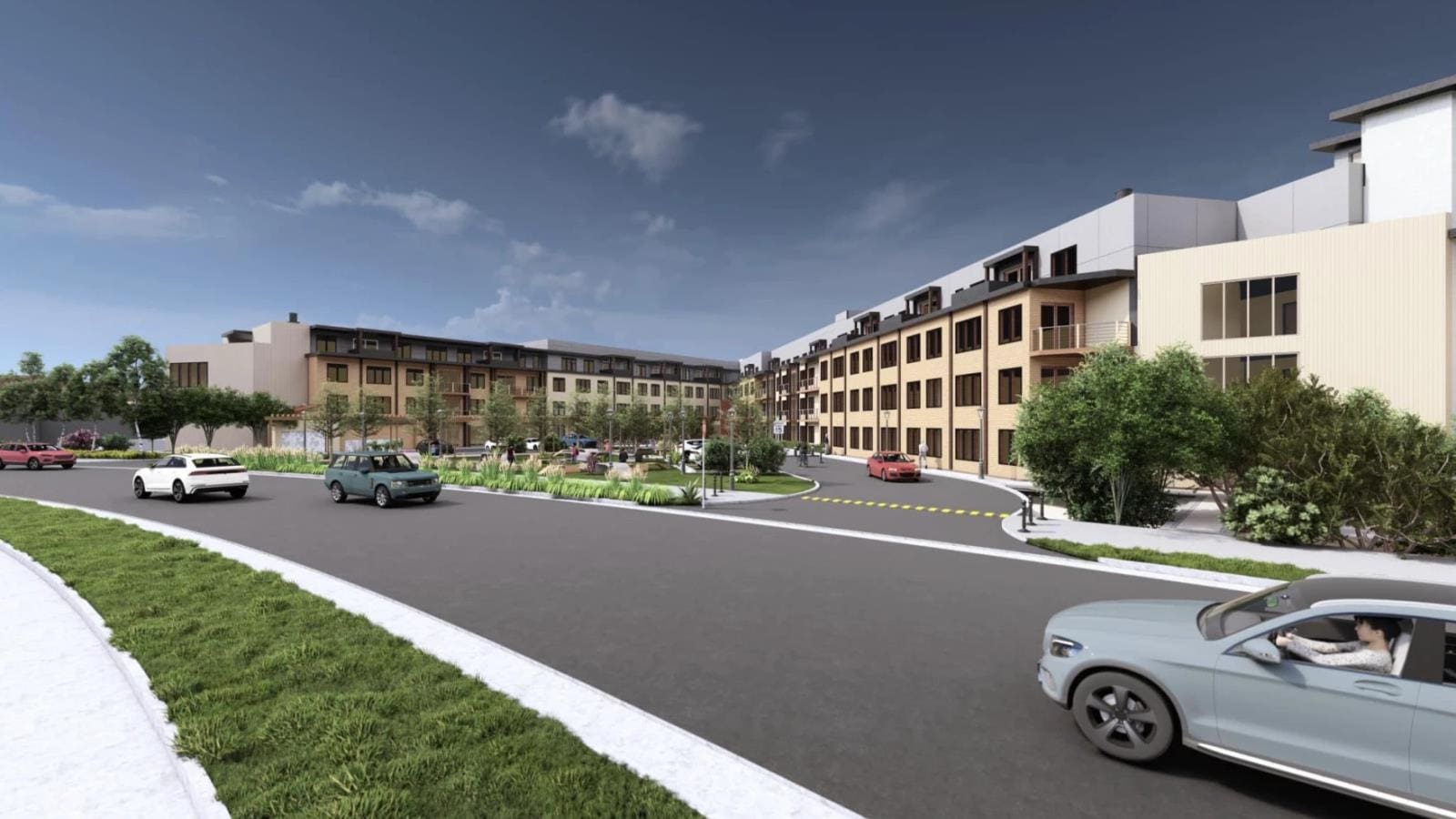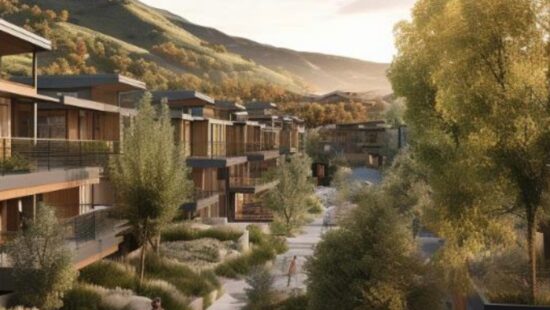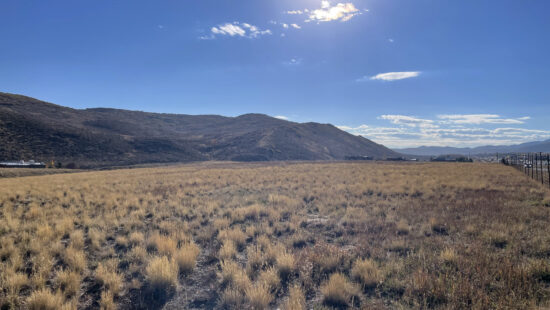Neighbors Magazines
Housing Resource Center (HRC): There’s no restricting any good deed
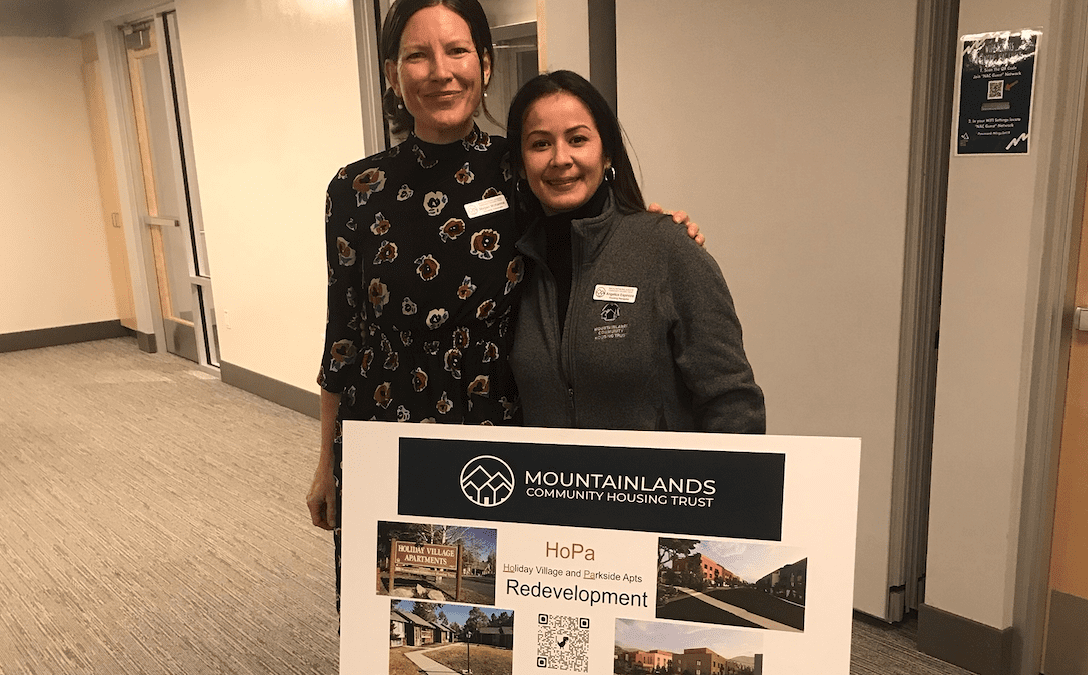
The Housing Resource Center's housing advocate, Megan McKenna and housing navigator, Angelica Espinoza. Photo: Housing Resource Center
Deed-restricted, inclusionary, affordable housing
By Maritza Roño Refuerzo, Neighbors of Park City
To a first-time homebuyer or renter, this may sound a bit intimidating. I mean, what could possibly restrict a deed? And are we talking “deed” as in an intentional, conscious act (usually one that’s good—or, in this case, maybe not?), or simply a legally binding document?
“Inclusionary” and “affordable” are much friendlier and more inviting terms—yet, not surprisingly, for most people, they evoke prejudice, fear, and misconception. Potential affordable housing homeowners or tenants might ask themselves, “Do I need to be homeless to qualify?” Or, “How do I go about navigating this ‘intimidating’ process?”
Angelica Espinoza, housing navigator at the Housing Resource Center (HRC)—a branch of Mountainlands, a 501(c)(3) nonprofit organization, wants everyone in Summit and Wasatch Counties to know about the HRC’s services. “We help people get applications to apartment complexes and property managers. We also assist first-time homebuyers through each step of this complicated process.”
Located in Park City’s Prospector Square between Alpine Adventurers Academy and Lectura Lounge is Mountainlands Community Housing Trust, where the HRC is based.
Back in college, I had accompanied a classmate of mine to a volunteer stint for Habitat for Humanity, where we were assigned to be part of a construction crew that, literally, helped build someone else’s (affordable) home—so, naturally, I wondered if Mountainlands might be a Habitat-type operation.
“Mountainlands is a nonprofit, but, unlike Habitat for Humanity, we aren’t nationwide. We’re known as a builder of affordable housing,” emphasizes Angelica. According to Housinghelp.org, the HRC’s website, Mountainlands has constructed and sold almost 350 homes to moderate-income households and built or restored more than 300 affordable apartment units in Summit and Wasatch Counties for the past thirty years.
Affordable housing in Park City?
Angelica laughs at my question. “Have you heard of the term ‘NIMBY’? ‘Not in My Backyard.’ There are people who support affordable housing, but not necessarily in their city.”
In Park City—where workers actually outnumber its residents—Mountainlands, since the 1980s, has built affordable housing communities. “HOPA [Holiday Village and Parkside Apartments], one of our projects, was just approved in June by the Planning Commission,” boasts Angelica.
Isn’t HOPA those residences right next to Park City High School? Centrally located and easily accessible by public transit?
“There are 122 units being prepared for complete redevelopment,” Angelica adds, laughing again at my affordable housing naïveté. “We have funding to rebuild 115 existing units and to add even more units to the entire site.”
Angelica and her colleagues work from 9-6 p.m. on Tuesdays and Thursdays, always ready to speak with walk-in clients. When I returned to the HRC two days later, on a Thursday, I opened the door to what looked like a mini-board meeting. “We’re a staff of only three,” says Angelica, “So, aside from our job duties, we’re handling communications and marketing on social media.”
Among this mini-but-mighty staff is Megan McKenna, who serves as the HRC’s Housing Advocate. “Mountainlands never had dedicated positions to housing navigation and advocacy work. Angelica and I were hired last year to help educate the community, to tell everyone who we are,” Megan explains. “We present to different organizations and employee groups, and we partner with Park City Community Foundation, Mountain Mediation Center, and Park City Municipal, working together to organize community events that provide information about renting and ownership.”
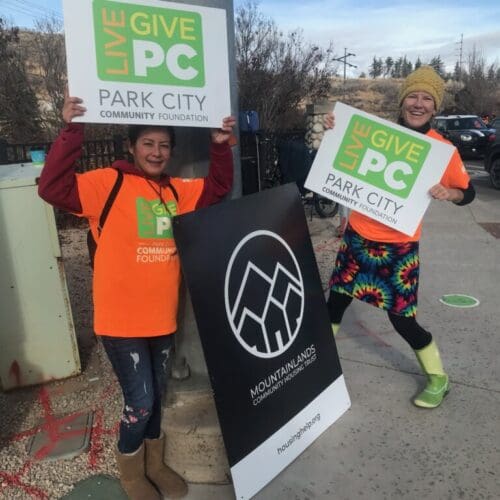
“Our pitching point to Summit and Wasatch Counties goes back to NIMBY,” Angelica adds. “We want to keep our local workforce here, as in local. Imagine, there are 9,000 cars driving into Summit County every day, so affordable housing also helps with traffic!”
According to Angelica, residences like Carriage House devote 78 percent of their lodging to Airbnb guests. However, there’s been a recent trend with current owners steering away from nightly and weekly offerings and instead renting to local workers to create a stronger and more diverse community.
Angelica and Megan are determined to continue their advocacy and education to help house our community. “Studio Crossings is another project in the works, where I believe 200 of its 300 units will be devoted to affordable housing,” says Angelica, “including families with not just lower-than-median income but also seniors. Did you know there’s no senior housing in Park City?”
Aren’t seniors a vital part of our community—to any community?
“Aside from housing for seniors, we don’t even have emergency housing or homeless shelters,” Angelica says. “In Utah, a code was passed recently, requiring counties to have a warming center if temperatures drop below 10 degrees.”
Nonetheless, Angelica and Megan are hopeful. Angelica believes that the community as a whole—including the NIMBYs, the Housing Authority, and the Housing and Stability Division—is starting to get it. New to Mountainlands are services for Wasatch County, in addition to Summit County. “The Housing Authority wants Park City to restrict at least 20 percent of its residential development to affordable housing. Also, there’s a lot of affordable housing in Wasatch, but no one knows about it. We want more people to come talk to us!”
Angelica and Megan would be more than happy to explain the meaning of “deed restricted” and other housing lingo to those who are “intimidated” by the “inclusionary and affordable” housing process. “We love what we do,” Angelica beams. “We’re committed to our mission.”
















